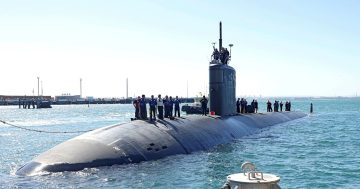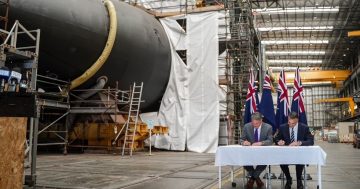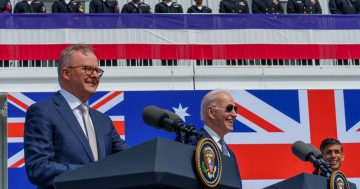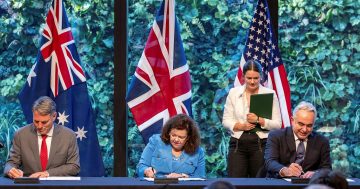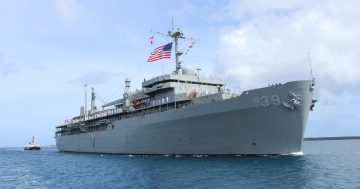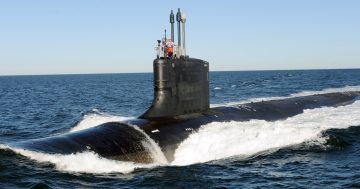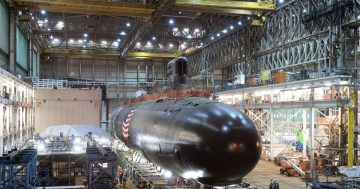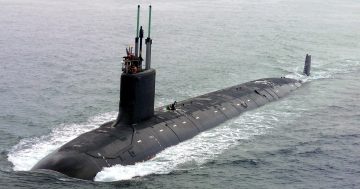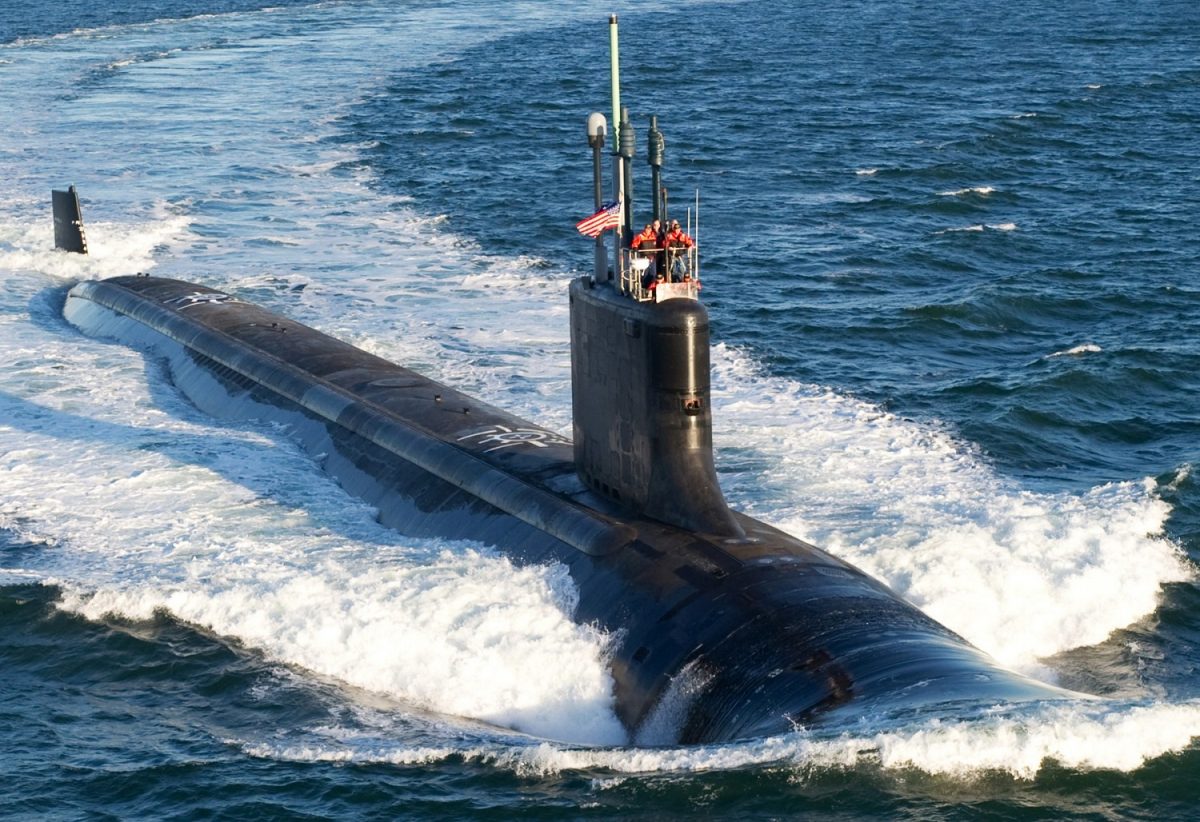
US Navy Virginia-class submarine USS Mississippi. Photo: US Navy.
Doubt has been thrown over the 2021 agreement inked by Australia, the UK, and the US (AUKUS) to provide nuclear-propulsion technology to Australia for a fleet of new submarines, after two powerful US lawmakers expressed concern over possible implications of the deal.
The AUKUS security initiative sought, in part, to provide Australia with nuclear-powered attack submarines (SSN) in place of a fleet of French-designed conventional Attack-class submarines that were cancelled by the Morrison government in July 2021. A team of Australian Defence and science personnel has been liaising with its AUKUS partners to study which design – either the US’s Virginia class or the UK’s Astute-class boats – would be the most suitable from which to base an Australian submarine design, and are due to report back in early 2023.
It has been widely reported that the UK will soon discontinue building Astute-class submarines and move to a new design from next decade partly because the nuclear reactors those boats use are no longer produced. So, unless a new, costly, and technologically risky design is selected, or in the unlikely event that Australia reverts to a nuclear-powered version of the French Attack-class design, the only possible solution is the US’s Virginia class.
But the Pentagon can’t build Virginia-class boats fast enough for itself. The US Navy sources its submarines from two shipyards – General Dynamics Electric Boat in Connecticut and Huntington Ingalls in Virginia – and both yards’ supply chains and workforces were severely impacted by the pandemic and have yet to fully recover.
Despite a 2011 plan to increase Virginia-class production to two boats a year, US-based breakingdefense.com reports that the two shipyards have only been able to deliver an average of 1.2 boats a year since that time.
This shortfall was highlighted by the two lawmakers, Senators Jack Reed and James Inhofe – both of whom are members of the Senate Armed Services Committee (SASC) – in a letter to President Joe Biden dated 21 December, 2022. The Democratic Senator Inhofe has since retired at the end of the last term, while the Republican Senator Reed will continue his tenure as chairman of the SASC through the next US election cycle at least.
“Over the past year, we have grown more concerned about the state of the US submarine industrial base as well as its ability to support the desired AUKUS SSN end-state,” Senators Reed and Inhofe reportedly wrote in a sign of bipartisan unity.
“We believe current conditions require a sober assessment of the facts to avoid stressing the US submarine industrial base to the breaking point.
“We are concerned that what was initially touted as a ‘do no harm’ opportunity to support Australia and the United Kingdom and build long-term competitive advantages for the US and its Pacific allies, may be turning into a zero-sum game for scarce, highly advanced US SSNs,” they added, essentially meaning they advise against exporting Virginia-class boats to Australia while the US Navy can’t fulfil its own requirements.
“AUKUS options that would have the US transfer or sell Virginia class submarines prior to meeting requirements would make the US Navy less capable of meeting sovereign wartime and peacetime requirements,” it says. “Make no mistake, we recognise the strategic value having one of our closest allies operating a world-class nuclear navy could provide in managing long-term competition with an increasingly militaristic China. However, such a goal will take decades to achieve, and we cannot simply ignore contemporary realities in the meantime.”
The ABC reported on 6 January that a spokesperson for Australia’s Defence Minister Richard Marles said: “The optimal pathway for Australia to acquire nuclear-powered submarines is taking shape, and an announcement remains on track to be made in the first part of this year. AUKUS will significantly transform Australia’s strategic posture, and the work undertaken over the last 16 months speaks to a shared mission between Australia, the United Kingdom, and the United States.
“Australia is grateful for the work which we have been able to do with the United States and United Kingdom to enable Australia to acquire a nuclear-powered submarine capability, and the significance of the US working with the UK through the AUKUS framework to provide Australia with that important capability is not lost on us.”
The ABC report also said one of the biggest challenges for incoming US ambassador, former prime minister Kevin Rudd, was to cement the AUKUS relationship. Outgoing ambassador Arthur Sinodinos told the Australian Strategic Policy Institute (ASPI): “The [US-Australian] relationship is in great shape, but there are some big challenges ahead, particularly bedding down AUKUS and getting that implemented. That’s a particular challenge.”
